IDPs’ life in Khurvaleti
Parliamentary elections in Georgia are scheduled for October 8. Political analysts and politicians claim, they are going to change the country. And the country is the cities and villages, as well as their population. JAMnews allows them to tell, how their lives have changed after the previous elections and what they expect from those, who will come to Parliament in October.
The first story is about those, who had to abandon their houses in South Ossetia and escape the war in August 2008. Akhali Khurvaleti village, Gori district.
There is the Georgian checkpoint at a turn to Akhali Khurvaleti village. For the security reasons, all bypassers are stopped and requested to produce IDs, as well as to specify a place of destination, a purpose and duration of their visit. We weren’t an exception either. We said, we were the journalists.
“As you know, there is a barb-wire fence 2km away from Khurvaleti. So, watch out, a police officer told us, allowing us to proceed on our trip. He also warned us that the law-enforcers would ensure our security in the IDP settlement.
It’s a conflict area. A village named ‘Akhali Khurvaleti’ appeared here in 2009 and it’s one among those few settlements, built by the Georgian government for those, who were left homeless as a result of the August war 2008.
Located at a 20km distance from Gori, Akhali Khurvaleti comprises 139 cottages. The settlement is situated in the vicinity of the administrative border of South Ossetia.
It was a hot afternoon. We slowly drove away from the central highway and turned onto a gravel road. Our car was bumping along the road, leaving a thick cloud of dust around it.
The houses, lined up side-by-side, could be seen from afar. All cottages looked alike, with cream-colored walls and grey roofs.
“You’ve come to see the barb-wire fencing, haven’t you? asked Iza, whom we met at the very first cottage and who kindly agreed to guide us through the settlement.
Iza Okropiridze is 33. While we were walking the narrow streets of the settlement, Iza shared her story with us.
She is majoring in philology. And she received her undergraduate degree in Tskhinvali. She has had many friends there, though she no longer communicates with them now.
Before the 2008 war, she used to live in a big, two-storey house, in Disevi village. She hasn’t seen that place for 8 years already.
“The only thing I know is that my house no longer exists; it was burnt down and ravaged. We have had plenty of fruit and a good vegetable garden, but it all probably dried out due to the lack of tending, she said.
The war has radically changed her life. She is now engaged in various projects, taking care of IDPs and trying to solve their problems.
The law-enforcers were standing nearby, with their eyes fixed on us.
Iza said, the police were patrolling the settlement all the time. “We’ve got used to them. The Russian troops are stationed a few kilometers away from here and we need to be protect by someone, don’t we?!
The so-called barb-wire fencing has become a matter of particular concern for the locals.
With the aim to mark off the so-called ‘border’ of South Ossetia, the Russian military have started installing metal poles and unfurling barbed wire along the entire administrative border.
This process, that has become particularly intense since 2013, has turned to be very acute for those, residing in the vicinity of the administrative border. As a result, thousands of Georgian families have found themselves beyond the barb-wire fencing, completely isolated from the area controlled by official Tbilisi. Others have lost their pastures and arable lands.
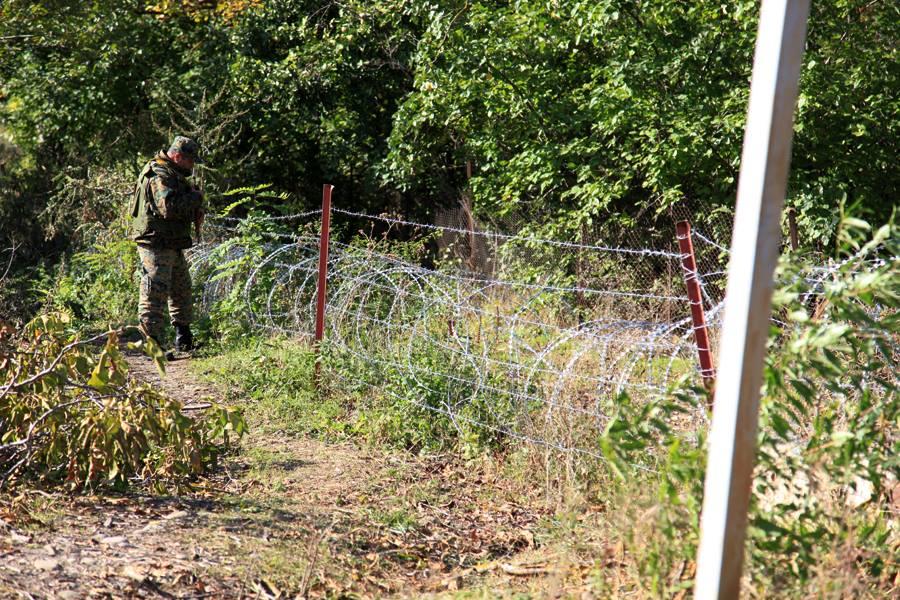
Georgian mass media frequently report about the citizens of Georgia, who were detained for the border trespass and taken to Tskhinvali pre-trial detention facility.
“Let’s say, your cow has crossed into that part and you go there to bring it back, that’s what they call the border trespass…they are creeping hitherto so that I’ve got a feeling they will come here one day and urge us leave this are too, Tamar, an IDP from Ksuisi village, joined a conversation.
Tamar showed us around her 2-bedroom house, similar to thousands of other houses in this settlement.
“See, everything is shaky and unstable here. The house was built in a haste and, as a result, it turned out to be of poor quality, she said, pointing to the broken floor and the cracked walls.
In Tamar’s words, most of the houses in the settlement are in such a condition.
“There are six members in our family and we actually have to live in one room. The floor had broken down. We were told, they would come and fix it, but no one has showed up so far.
All members of Tamar’s family are jobless. They have to live on the IDP allowance amounting to GEL45, as well as to sell the crops they yield during the season. They cultivate barley on a tiny land plot that the government allocated to the IDP families. Tamar’s mother is 83 and couldn’t walk independently. In addition, a lot of money is spent on her medicines.
“But I wouldn’t complain, if we have had the irrigation water. We would have set the orchards then and would have earned our living through our labor, says Tamar.
The lack of water is the major problem here. Once famous for their bountiful fruit and vegetable crops, nowadays the conflict zone villages could hardly collect drinking water, to say nothing of the irrigation water.
There are blue water reservoirs, lined up in each yard, where the locals collect water.
“Each day starts with filling these tanks with water. Is that a normal life’? says Tamar.
The settlements in this area have been facing the water problem since 2008. The matter is that the water in the irrigation channels was flowing from South Ossetia, but the headwaters have been blocked, leaving thousands of villages with no irrigation water.
Despite a fragile peace and dreary living, life doesn’t stand still in Khurvaleti.
During the first years after the war, the IDPs regarded it as temporary housing area and cared less for its development, whereas today the picture is absolutely different.
“Nothing could replace my village and my forefather’s house to me. I don’t even want to think that I will never see that place again. I am sure, I will return there one day, but before that happens, the life moves forward… I’m gradually getting accustomed to the fact that today my house is here. My children are growing up and I should take care of them, says Beglar Zurabishvili, as if trying to justify himself. There are a lot of people outside his cottage. Some are bringing water here, others are carrying bricks, some are mixing the cement. Beglar decided to expand his dwelling and add one more room to his cottage. His neighbors are helping him in this matte.
There are men and women sitting on a bench nearby, it’s a local meeting place.
I asked them about the upcoming elections. ‘What king of elections’? they answered jokingly.
‘At least they cheated us with pledges earlier, saying we would have this and that, whereas now they don’t do even this, said an elderly man.
‘Wait, man, there is a good deal of time ahead. They will be fussing around, making promises, but who is going to believe all that. We haven’t felt any improvement over the past four years. Now it’s even worse than it used to be. The houses are collapsing, we have no water supply, the sewage water is leaking right into the houses. The people are suffering here and no one cares for us, a young man says in response.
They recall that during the previous elections, some of them joined the political parties with the hope they would be assigned to observe the election and would be paid money for that.
“It’s going to be the same now. People need jobs and salaries, who cares for their parties?!.
The issue of Russian-Georgian relations caused particularly heated debates.
Iza believes that rapprochement with Russia is not going to bring anything good to Georgia, because Russia is an occupant and it aims at seizing the entire territory of Georgia.
Jemal Makhniashvili also shares Iza’s opinion: “Russia is an enemy. I couldn’t love my country’s enemy, neither could I have any intention to be on friendly terms with it,- he says.
“Do you really think Europe and USA are going to help us? If there is no one in the new government to settle the relations with Russia, Tskhinvali will never open the headwaters for us and will be left without any water, Valiko Toliashvili joined the conversation in an emotional manner.
It was getting dark. The weather was changing. It was going to rain, so were in a hurry. On the way back, we stopped at a house with a well-tended garden. The fresh grass was trimmed to one size there. The flourishing rose bushes and the pot flowers, hanging on the balcony railing, testified to the housewife’s caring hand.
This is Violeta Khokhashvili’s house. She knows that we are the journalists and there is something she would like to share with us:
“I’m 67. I’ve been working as a school teacher for years. I don’t like to complain, but there is one thing I would like to ask you. I pity for the children and the youth. They have neither jobs nor entertainment. Maybe you could report that to the officials, so that they take care of them. Maybe they will build a kindergarten here. There are so many kids here, I feel pity for them.
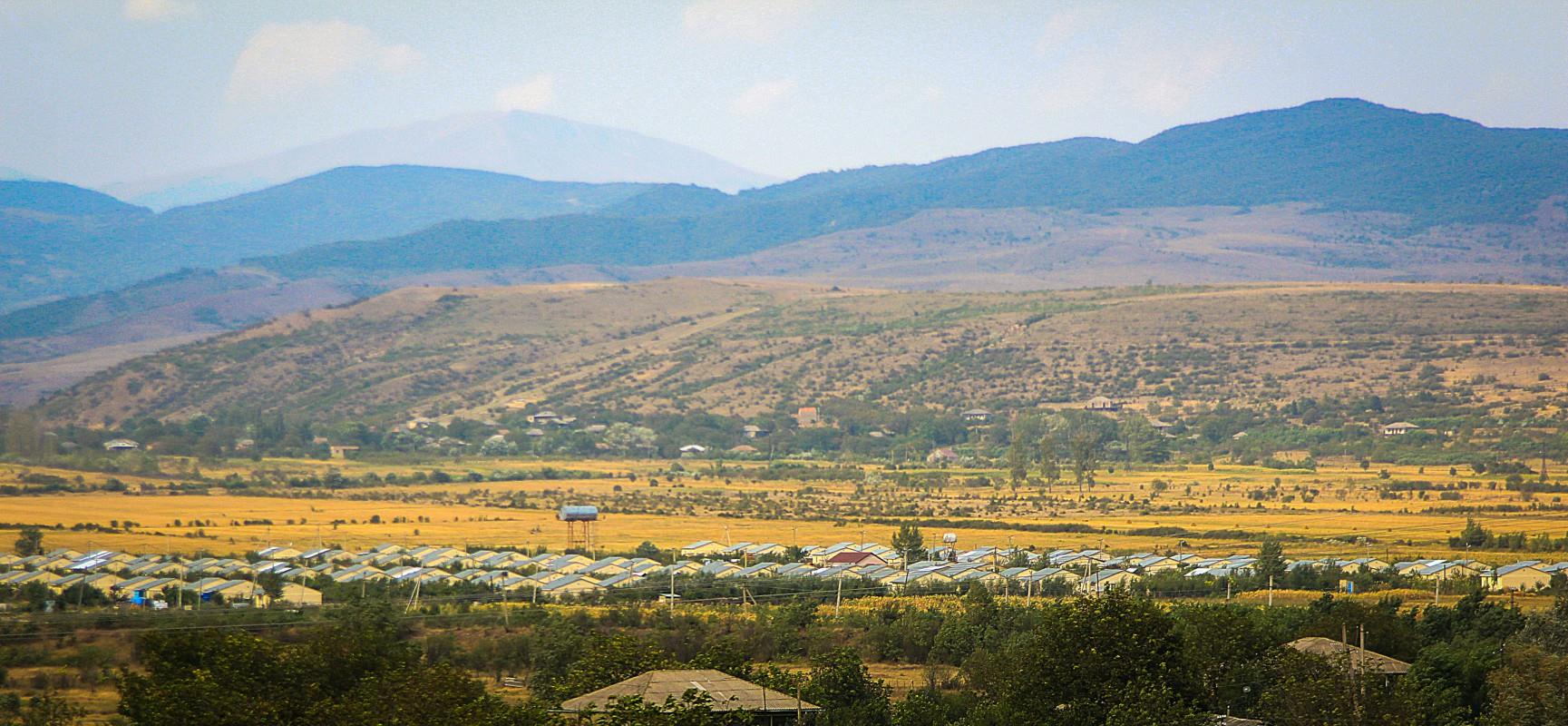
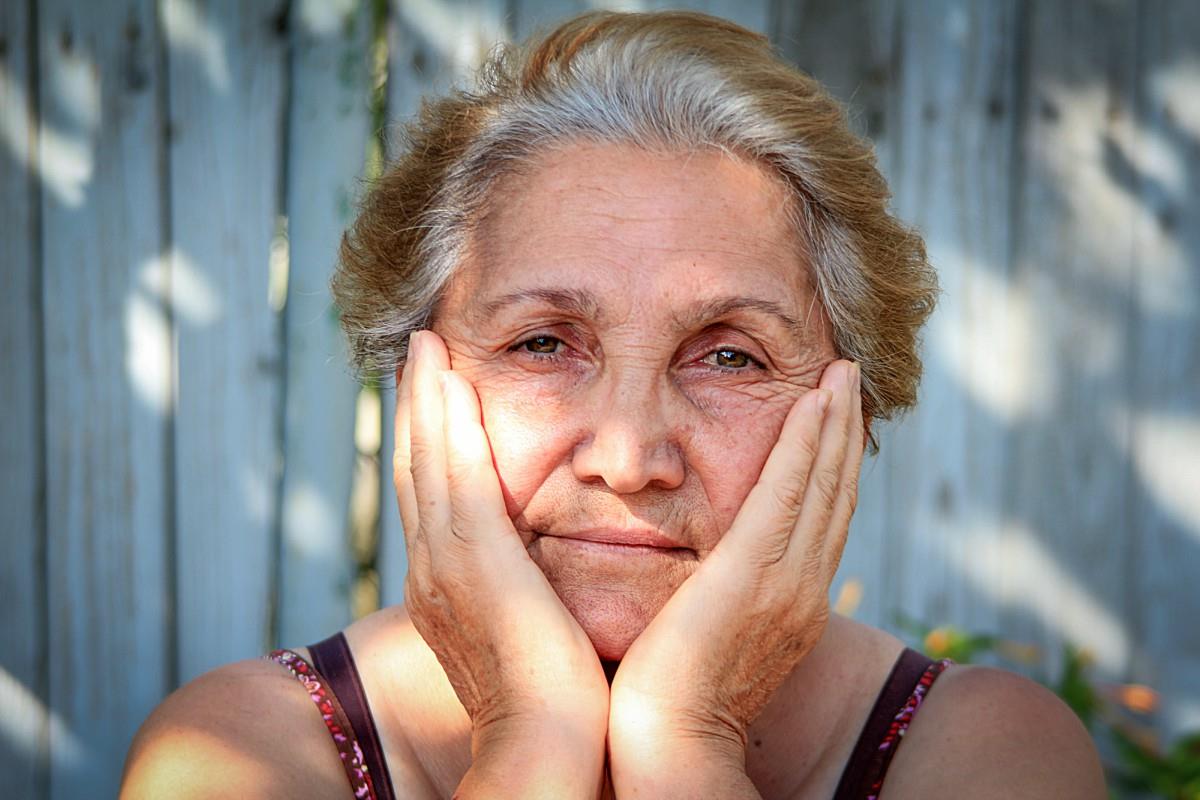
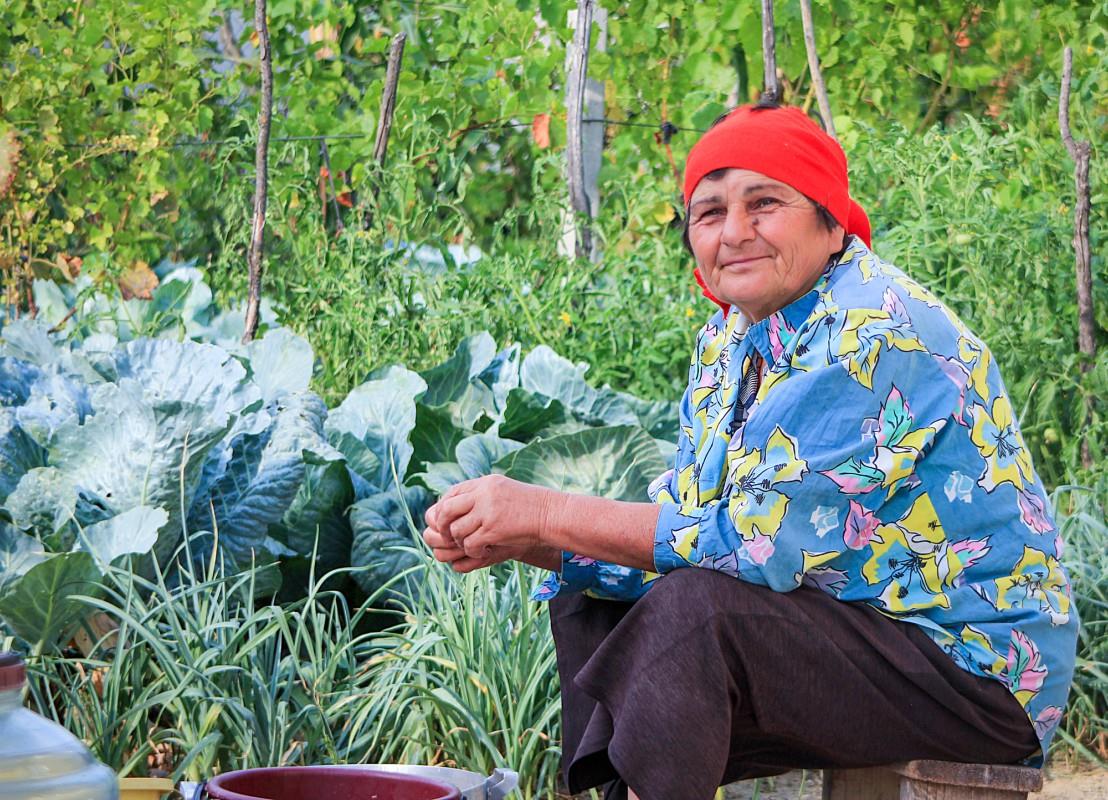
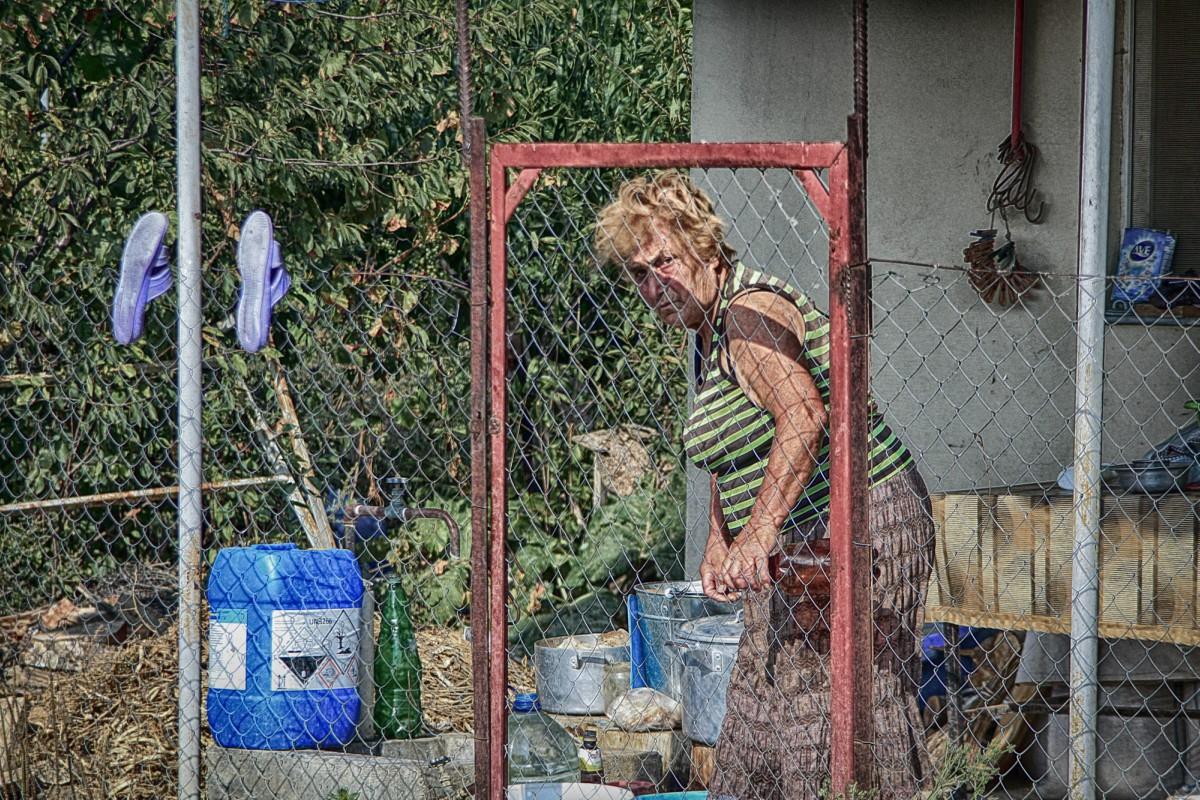
Published: 08.09.2016




















